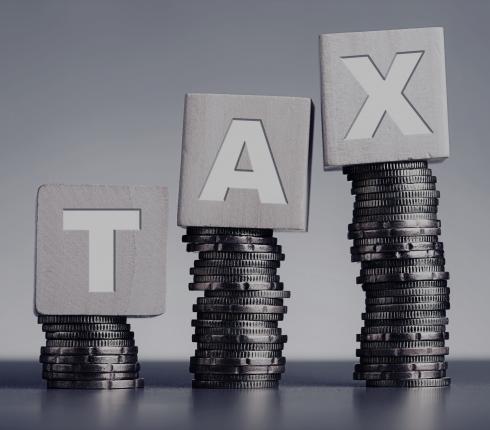12 new bills in the tax and duty area in new legislative program
The government announced the new legislative program for the parliamentary year 2023-2024 during the opening of the Danish parliament on October 3, 2023. The Minister of Taxation has introduced 12 new bills for new and for amendment of existing laws for direct and indirect taxes. NJORD Tax and VAT has read the legislative program in the field of taxation. In this article we highlight the most significant bills for individuals and companies.
Changes of significance for businesses
It is clear that the focus of the Minister of Taxation is partly on climate and sustainability and partly on increased regulatory compliance and control. Among the new bills is, for example, the proposal for the Act of Tax on CO2 quotas, which aims to ensure stable frameworks for the long-term green transition by introducing a new CO2 tax for emissions from quota-covered companies.
This bill also results in a proposal for measures to reduce energy taxes and increase the CO2 tax. Additionally, the taxes are to be extended to fuel used for among other things fishing.
In bills for amendments the VAT Act, the Chocolate Tax Act, and various other acts suggest the introduction of a simpler VAT scheme for small businesses and the adjustment of the taxable goods area in the Beer and Wine Tax Act.
In the field of taxation, amendments are also proposed to the Registration Tax Act, the Vehicle Registration Act, the Fuel Consumption Tax Act, the Tax Administration Act, and various other acts to ensure regulatory simplification and increased compliance in the motor sector. Additionally, there is a proposal for the tax exemption of blood busses and vehicles with permission for commercial passenger transport for small shipments etc., as well as the regulation of the tax calculation of used vehicles and introduction of a deadline for exporting a vehicle when applying for an export refund.
Finally, bills are highlighted for the act on an additional tax for certain group entities (the Minimum Taxation Act), which aims to implement the directive on global minimum taxation in Danish law. The directive follows up on the OECD agreement on the taxation of the digital economy and aims to ensure effective minimum taxation of at least 15 percent for large multinational and national groups.
Changes of significance for individuals
Of significance for individuals, among other things a change to the rules on the share savings account is proposed, whereby the deposit limit is increased, just as it is proposed to adjust several tax rules related to investments in stocks, investment certificates, and other securities etc.
In addition, an increase in the personal deduction for individuals under 18 years old is proposed, along with changes to the rules for preserving a lower pension payout age. The purpose of the bill is to establish clear rules for when the age limit for payouts can be preserved through the transfer of pension schemes, for example in connection with a job change.
Furthermore, the program includes the already controversial bill for rules to postpone the expiry of debt entries in the temporary recovery system, DMI, starting no earlier than November 2027. The bill also aims to enable transversal salary withholding, allowing for salary withholding in DMI as well.
Do you want to know more?
If you have any questions about the new bills or are uncertain about their potential impact on you or your business, feel free to contact attorney and partner, Kaspar Bastian, and attorney, Nele Rickelt, who are a part of NJORDs tax team.











